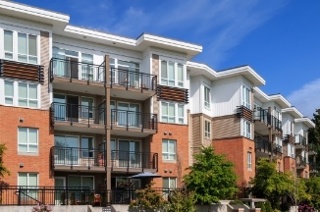An unhappy unit owner has contacted the community association’s board or property manager and demanded alternative dispute resolution (“ADR”). Does the association have to provide ADR? What is the format for ADR? Who pays for it? Is the decision binding or can it be appealed? Does the association need a specific ADR policy? These are questions commonly posed when disputes arise.
Does the Association have to Provide ADR?
Many community associations’ governing documents include an ADR policy and may even provide for an ADR committee. Regardless of what the governing documents do (or do not) say, however, community associations in New Jersey are required to provide a procedure for the resolution of housing-related disputes. Although most ADR matters are between owners and the association, ADR is also applicable to disputes between unit owners.
Both the New Jersey Condominium Act (Condo Act), N.J.S.A. 46:8B-1 et seq., and the Planned Real Estate Development Full Disclosure Act (PREDFDA), N.J.S.A. 45:22A-21 et seq., require associations to provide a “fair and efficient” alternative to litigation for unit owners to resolve “housing-related” disputes between one another or with the association.
What are “Housing-Related” Disputes?
The Condo Act does not define the term “housing-related disputes,” but New Jersey’s courts have broadly construed this to include any dispute arising from condominium ownership. In a recent decision, the New Jersey Appellate Division reiterated that condominium associations must offer ADR for any “housing-related dispute,” including non-payment of assessments, prior to filing any non-emergent legal action against a unit owner. In Bell Tower Condominium Association v. Haffert, 423 N.J. Super. 507 (App. Div. 2012), unit owners appealed an order that granted the summary judgment motion of the plaintiff association, thereby entering judgment against defendants in the sum of $22,400. The judgment in the association’s favor resulted from defendants’ refusal to pay their portion of a special assessment imposed by the Board of Trustees for various repairs and improvements to the condominium premises. Defendants’ refusal to pay stemmed from objections to the association’s decision-making process concerning the special assessment. The Appellate Division determined that the dispute over the special assessment did in fact fall within the language of the Condo Act requiring a “fair and effective procedure for the resolution of housing-related disputes”. Because the unit owners had raised substantive issues concerning the association’s management of the condominium’s common elements, the court held that the special assessment dispute should have been submitted to ADR and therefore reversed and remanded the matter for ADR.
What is the format for ADR?
The DCA Alternative Dispute Resolution Guide provides that ADR procedures can be either mediation (attempting to work the matter out to mutual agreement) or arbitration (a more formal proceeding ending with a decision). An arbitration proceeding operates much like a trial in which witnesses testify and evidence is presented. Although there are individuals qualified as mediators and arbitrators (often times, retired judges), there is no requirement for any training or certification for one to serve as either a mediator or arbitrator in community association ADR proceedings. Whoever conducts the proceeding must not be biased or partial as measured by an objective standard. Thus, the ADR could be conducted by other unit owners.
Community association ADR is non-binding, so a party who is not satisfied with the result retains the right to pursue the matter in court.
Who pays for the ADR process?
The DCA at one time took the position that a community association had to provide the first round of ADR at no cost to the unit owner; however, a New Jersey appellate court has since confirmed the right of an association to require a deposit by a unit owner seeking ADR, with the cost of ADR ultimately to be split by the parties.
Should our association adopt an ADR policy?
ADR can be a simple and cost-effective means to resolve an issue. Failing to offer ADR may result in a court ordering the parties to submit to the process. Therefore, condo associations or HOAs without an ADR policy or procedure should consider adopting one.
Community Association Lawyers in New Jersey
Our firm advises and helps Community Association and Homeowner Association clients resolve legal disputes. Contact Davison, Eastman, Muñoz, Paone, P.A. to discuss your legal concerns with one of our experienced lawyers.














